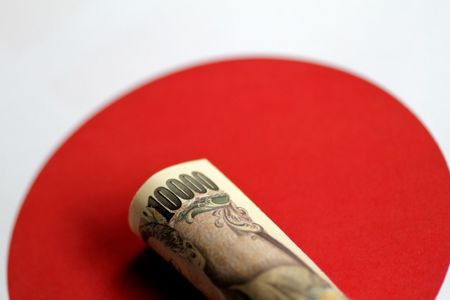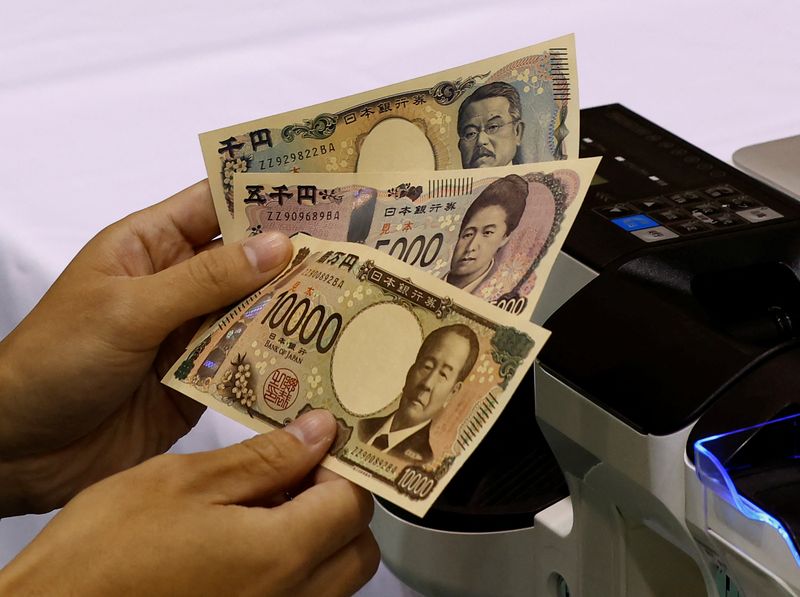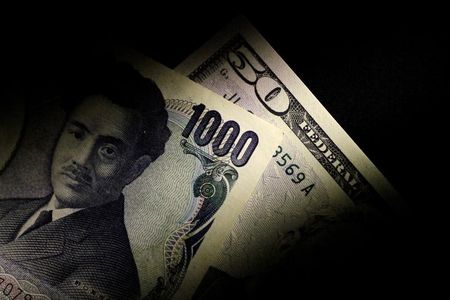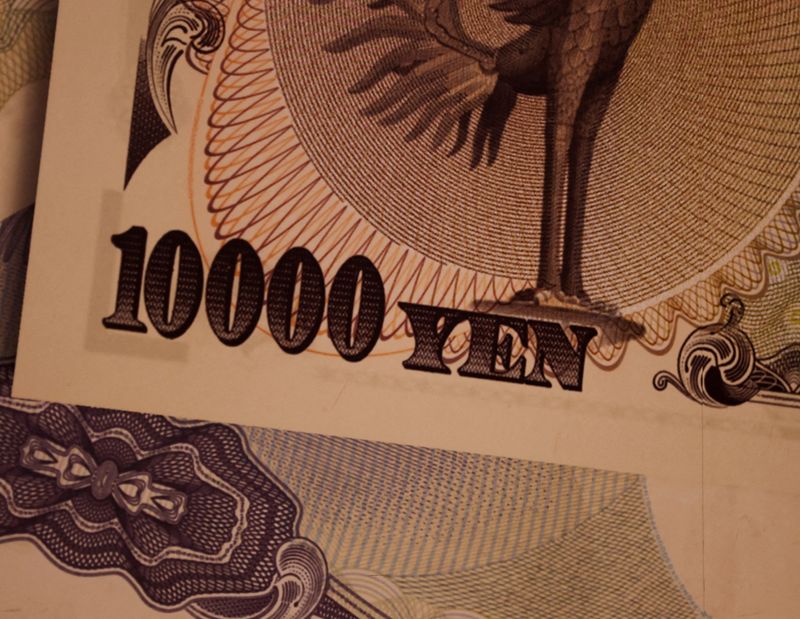USD/THB – US Dollar Thai Baht
USD/THB – US Dollar Thai Baht News
VIEW MOREAsia FX flat amid rate jitters; yen passes intervention line ahead of BOJ
Investing.com– Most Asian currencies kept to a tight range on Thursday, while the dollar steadied amid uncertainty over U.S. interest rates ahead of key economic…
Explainer-What would Japanese intervention to boost a weak yen look like?
By Leika KiharaTOKYO (Reuters) -Japanese authorities are facing renewed pressure to combat a sustained depreciation in the yen, as traders drive down the currency on…
Dollar slips ahead of US growth data; yen on intervention watch
Investing.com – The U.S. dollar slipped lower Thursday, retreating from last week’s five-month highs ahead of the release of key U.S. growth data, while the…
Dollar firmer on higher U.S. inflation; yen sinks vs euro, US currency
By Gertrude Chavez-Dreyfuss and Stefano RebaudoNEW YORK/MILAN (Reuters) – The U.S. dollar gained on Thursday after a hotter-than-expected inflation reading for the first quarter, affirming…
These Alts Dumped the Most as Total Crypto Market Cap Lost $100B in a Day (Market Watch)
Bitcoin’s price movements over the past several days were quite promising as the asset had recovered from last week’s crash and stood above $66,000 and…
Dollar to Thai Baht exchange rate — what should a trader be prepared for?
More than two decades ago, the USD to THB depreciated heavily as a result of speculation, forcing the Central Bank of Thailand to abandon the local currency’s peg to the US dollar and adopt a managed floating exchange rate.
USD to THB is the strongest currency in Asia, strengthening nearly 8% against the US dollar last year, even as Thailand again bears the brunt of subdued growth. Domestic economic growth was an annualized 2.4% from July to September, up slightly from the second quarter’s 2.3%, but down from the first quarter’s 2.8%.
US Dollar to Thai Baht stability is an Asian phenomenon.
The national currency is a kind of mirror of the solvency and development of the economy. For two decades, the Thai baht has been strengthening against the world’s leading currencies: the US dollar and the euro. The stability of the Thai currency and economy never ceases to amaze. For several years, the Thai baht has been in the top 10 most stable currencies in the world and is not expected to weaken.
Measures to curb the growth of Dollar vs Thai Baht
Bank of Thailand Governor Veeratay Santiprabhob recently said that the USD to THB exchange rate is going beyond economic fundamentals, and the central bank is concerned about its strength.
Given that capital inflows must be balanced with outflows to relieve pressure on the USD to THB exchange rate, the central bank is seeking a radical overhaul of the Foreign Exchange Control Act.
The law, which has been in place for more than 70 years, was designed with positive risk in mind and deals with how local investors eligible to invest abroad must meet certain criteria.
Dollar vs Thai Baht: an uptrend
Despite a number of measures aimed at curbing the value of the Baht, such as lower interest rates and short-term Central Bank bonds combined with a one-third lowering of the non-resident outstanding balance limit, the value of the local currency remains a sore point for exports and the service sector.
Is the baht overvalued? The baht is still well below fundamentals relative to foreign exchange reserves, as Thailand’s international reserves are 10 months of import value, well above the global standard of three months. However, the baht is considered overvalued relative to export competitiveness.
Thailand’s Depressed Exports
Thailand is heavily dependent on the export sector, which accounts for a significant portion of the country’s GDP. While measures to ease central bank pressure on the baht are correct, it takes time for positive results to materialize.
The authorities should use fiscal policy to curb foreign capital inflows while continuing to relax some regulations to encourage capital outflows from local investors.
Thai exports have been hit hard by the appreciation of the local currency. Other countries can lower product prices to increase exports, but Thai exporters have a smaller margin gap to use this method.
With sufficient foreign exchange reserves and low inflationary pressures, Thailand will continue to be seen as a safe haven, attracting capital next year.
Stability of the Dollar to THB
Thailand’s economy has been growing at a very fast pace, especially after the Asian crisis in 1998, which severely impacted Thailand’s economy and national currency. Today, the country ranks second in Southeast Asia, and its GDP has been steadily growing at a rate of about 3-4% each year.
The World Bank has recognized the growth of the Thai economy as one of the greatest success stories in history. Well-calculated economic policies have allowed the Kingdom to transform from a third-world country into a nation with a developed and stable economy.
The Thai economy is well-balanced, which is one of its strengths. It generates income from various sectors and consistently exhibits stable growth rates, attracting investors from around the world who can trust the reliability of their investments in any area, including real estate.
Low inflation rate
Thailand has maintained a relatively low inflation rate. In recent years, the inflation rate has been decreasing and currently stands at only 0.7%. This can be observed in the Dollar to Thai Baht pair. What does this mean? It implies that if you don’t invest your money, its value will depreciate at the rate of inflation.
Dollar to Thai Baht: Conclusion
The Thai Baht is an attractive currency for traders and investors due to Thailand’s stability and economic growth. Government policies and economic reforms play a significant role in shaping the exchange rate of the Thai Baht. Investors and traders should closely monitor political and economic developments to make informed decisions. Additionally, Thailand’s popularity as a tourist destination also influences the Thai Baht exchange rate.Overall, the Thai Baht presents an appealing opportunity for traders and investors due to the stability and economic growth of Thailand. However, making well-informed decisions requires careful analysis and understanding of the factors influencing the Dollar to THB exchange rate. Investors and traders should monitor macroeconomic conditions, political developments, and tourist flows for successful trading and investing in the Thai Baht. You can also find the current USD to COP exchange rate and other currency pairs on our website.










